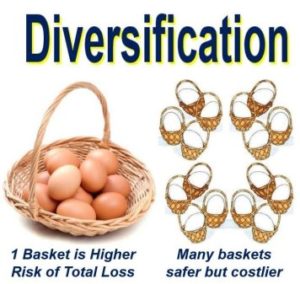SEC Penalizes Deutsche Bank for Questionable Accounting Issues
Accounting mistakes can happen to anyone, whether you’re self-employed, have a small business with just a few employees, or you run a major corporation. However, even when mistakes happen, the consequences can be damaging. When those mistakes, or irregularities, involve large organizations like corporations, banks and financial institutions the consequences can be severe.
Recently, the U.S, Securities and Exchange Commission decided to fine Deutsche Bank for financial accounts that were reportedly misstated as the most recent financial crisis in 2008 and 2009 was reaching its peak. According to reports, U.S. officials stated that the bank undervalued the risk on its books by incorrectly accounting for so-called gap risk as they pertained to LSS trades. The U.S. Securities and Exchange Commission fined the bank $55 million for the alleged improprieties.
Deutsche Bank claimed that it used such procedures because there were no reliable models available at the time to properly measure gap risk. The problem with understating gap risk is that it could make it seem that the bank’s books were actually stronger than they really were. The $55 million fine finally brings to a close a prolonged investigation into the valuation of complex derivatives.
Accounting policies and practices are very important for anyone, but especially public corporations that are under the watchful eye of the Securities and Exchange Commission. At GROCO we can help your company or financial institution, large or small, with all of its accounting needs. Just contact us for assistance by clicking here, or call us at 1-877-CPA-2006.
Investing with Style
Investing with Style How do you define your approach to investing? There may be many answers to that question. One answer goes to the style of investing that you choose: value or growth. Are you looking for value? The goal of a value investor is to seek out “bargains,” finding those companies whose stock may…
Introducing the “Total Return” Trust
Introducing the “Total Return” Trust The fundamental purpose of most trusts is to create a plan of financial protection for more than one beneficiary, often beneficiaries in different generations. “All the trust income to my surviving spouse, with the balance to be divided among our children at her death” might be used in a marital…
Making Tax-wise Investments
Making Tax-wise Investments Tax considerations are not, and should never be, the be-all and end-all of investment decisions. The choice of assets in which to invest, and the way in which you apportion your portfolio among them, almost certainly will prove to be far more important to your ultimate results than the tax rate that…
Reducing Risk With a Diversified Portfolio
Reducing Risk With a Diversified Portfolio Have you been worried about the stock market’s recent volatility? You’re not alone. The stock market in March was a roller-coaster ride that served as a reminder to investors that the market’s ups and downs can be a little dizzying. But a volatile market should not leave you feeling…




